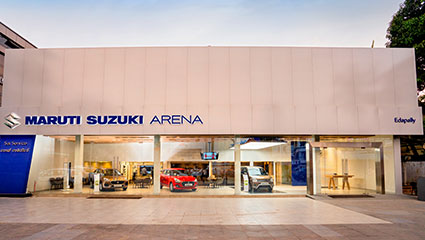
Somesh Services
The belts and hoses provide pressure and transfer energy to moving parts of your vehicle from the crankshaft. Hoses also keep your car’s engine cranking. The performance of the affected part may be compromised if there is a leaky or loose hose and belt.
Somesh Automobiles Car Services are always happy to provide their expertise in the condition of your car so that you can enjoy every ride in your beloved car. Our experts will carefully examine the vehicle and provide you with the best solutions suitable according to you.
What are the different types of belts in a car?
There are a lot of options for a belt in a car:
- Serpentine belt: Provides power to your alternator, climate control, and steering with energy from the crankshaft.
- Timing belt or timing chain: Helps coordinate and rhythm your engine valves and pistons. Aka gilmer belt or camshaft belt.
- Other automotive belts work with your serpentine belt to drive their respective parts
What are the different types of hoses in a car?
Following are several types of hoses that you can find for your car:
- Radiator hoses: Carry coolant between the engine and the radiator.
- Heater core hoses: Carry hot coolant through your climate control system to warm your cabin.
- Fuel hoses: They connect the fuel tank to the engine (In older cars). In modern vehicles, fuel is delivered via fuel injection in pressurized metal tubes.
- Brake hoses: Carry brake fluid from the (metal) brake lines to the calipers.
- Air intake hoses: Carry oxygen to your engine to ensure the correct air/fuel mixture for combustion.
- Other automotive hoses: Help operate the systems in your vehicle, such as the power steering hoses, A/C high- and low-pressure hoses, PCV valve hoses, and the oil cooler hose.
When to replace the belts and hoses?
Here are some signs that your vehicle’s belts and hoses need service:
- Chirping or squealing noise.
- Visibly loose belt.
- Visible belt or hose wear.
- Leaking fluid around a stocking or under your car.
- Battery problems like in starting the vehicle or if the battery light is dimmer.
- Engine problems like metal shavings in your engine oil, or the engine misfires, rattles, or doesn’t start.
- Vehicle system failure or overheating.
Somesh Automobiles Car service’s team will sift through the conditions and tell you which things are urgent to change and can be delayed for now. For example, we’ll know if that belt should be tightened or replaced. After the examination, we provide our customers with the best advice soothing your budget and conditions.
Why do car belts squeal?
Metal and rubber car belts squeal with temperature changes or maintenance needs. Also if:
- The strap is too tight or too loose
- A pulley under the belt is worn
If the belts are not replaced, your car can be affected by overheating, which might be a problem.
How often do I need to replace the belts in my car?
Each belt in your car has a different lifespan:
- Serpentine belt: Typically replaced at 50,000-100,000 miles depending on your belt material and driving conditions.
- Alternator belt and other part-specific belts: Usually covered under the service and replacement schedule of the part.
- Timing belt: A typical timing belt lifespan is five years or 60,000 miles.
- Timing chain: Timing chains are designed to last the entire life of your engine.
If you are a proud owner of a brand new Maruti-Suzuki in Gurgaon, you can get it serviced at Somesh Automobiles.
Learn More
- Car diagnostic check
- Oil and filter change
- Car service packages
- Tire repair and fitting
- Car Lights check
- Brake Repair and Maintenance
- Battery check and Service
- Regular Car Services
- Car Problems Diagnostics
- Air Conditioning Service
- Steering and Suspension
- Belts and Hoses
- Accidental car repair
- Free & Paid Services




